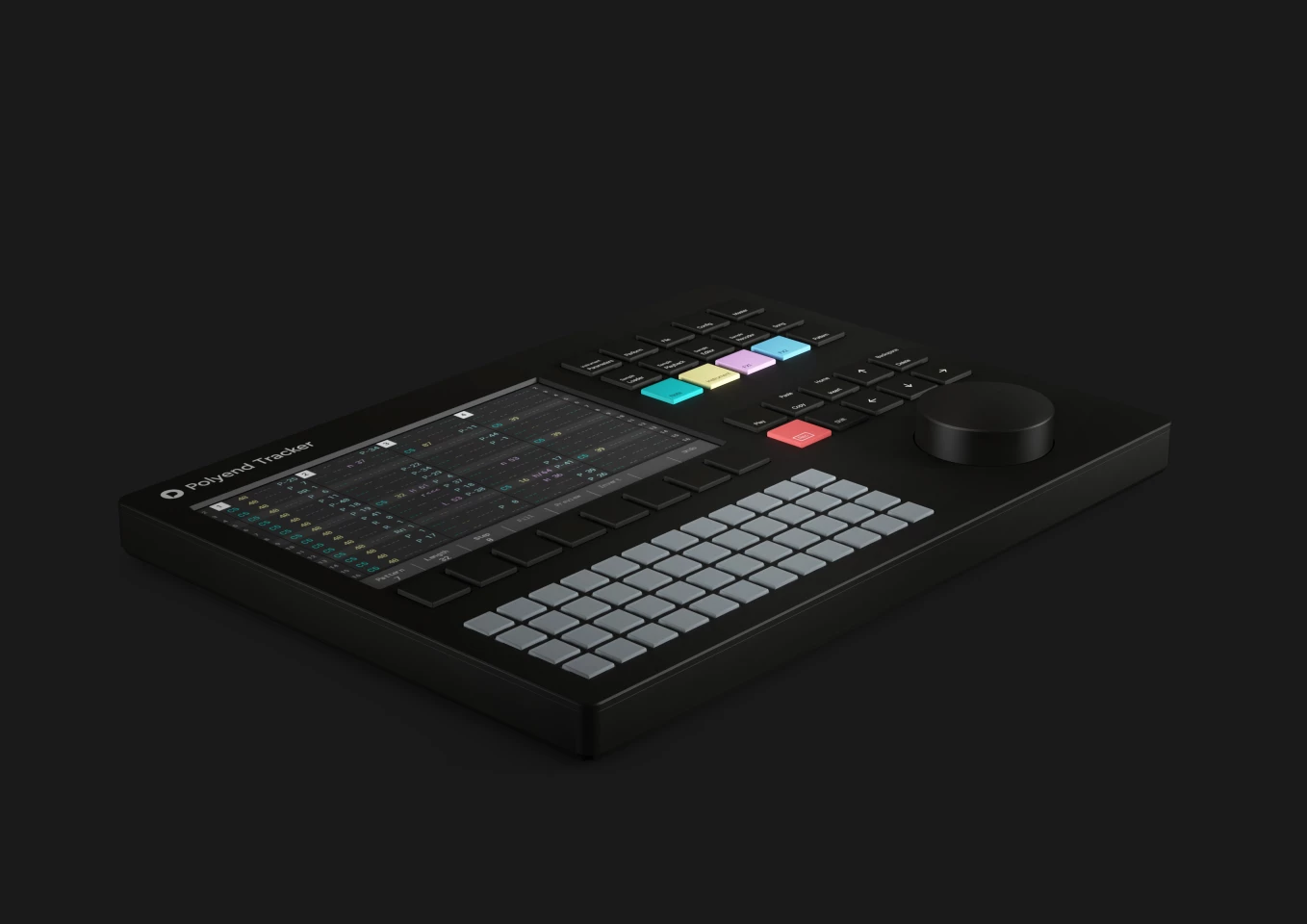After a brief online teaser campaign, Poland's Polyend – the same firm responsible for the mesmerizing Perc percussion system from 2016 – has revealed a new music production machine called the Tracker.
As the name suggests, the device is a hardware tracker, "effectively extracting the best bits of yesteryear's tricky tracker software classics" and bringing them together in a compact, portable workstation.
The term "tracker" in a music production sense comes from software created by Karsten Obarski and launched in 1987 for the Commodore Amiga. Ultimate Soundtracker began as a sound development platform for games, where notes were positioned in channels at certain points on a scrolling vertical timeline. Notes, parameter changes, effects and more were entered into fixed timeslots using a computer keyboard. Such sequencing software soon expanded beyond game sounds and attracted the attention of electronic music makers.
The hardware Tracker follows similar lines, merging a sampler/sequencer, mechanical keyboard and vertical timeline with an all-new input interface that includes a high resolution display, 48 backlit multifunction pads, function and navigation keys, a jog wheel with haptic feedback and dedicated editing keys. Polyend says that the device has been designed with immediacy and simplicity at its creative core, and reckons that software veterans and newbies alike should be making some noise in no time.

The display can show up to 48 instruments and 256 patterns, with up to 128 steps per pattern per project. Sound design tools out of the box include a chain that can make an instrument from any sample, both a manual and auto sample slicer, various play modes, a wavetable synethesis engine, a granular synth, a sample editor and a recorder. The sample recorder can capture up to two minute samples at 16-bit/44.1 kHz resolution to the included 16 GB microSD card using the built-in microphone or line-in inputs.
"Put it this way: with Tracker, users can quickly and easily use existing sample libraries, record new ones, or use the built-in FM (Frequency Modulation) radio," said Polyend in a press release. "Record samples, play them, slice them, mash them, or even make a synth out of them."
Tracker can work alone, but doesn't have to. Bi-directional MIDI allows the device to sequence and control external gear, or be controlled itself by MIDI software or hardware.
This looks like a powerful new tool for electronic music makers, and is up for pre-order now for US$599. Shipping is expected to start in June. The video below has more.
Product page: Polyend Tracker


